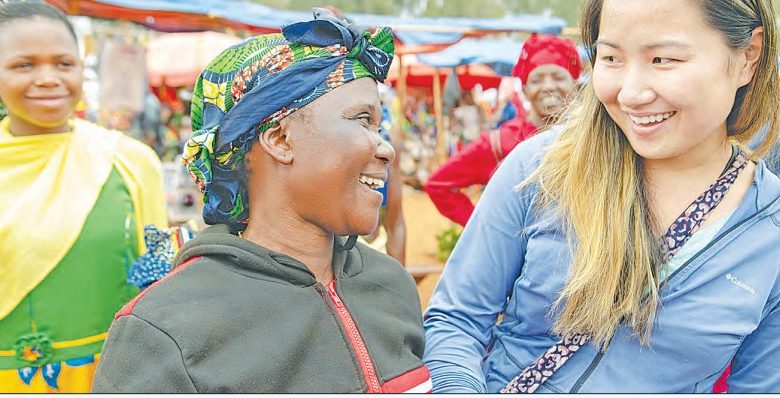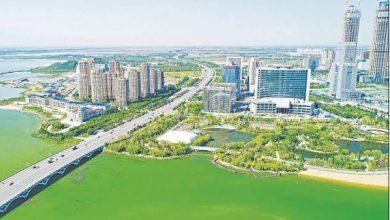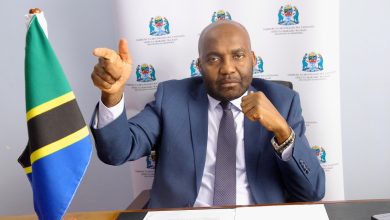Peace is paramount, avoid forms of distructions as October general elections near

AFTER carefully observing the stakeholders’ meeting regarding the October 2025 general elections, which was broadcast live by TBC, and listening to Tanzanian Police Chief DCP David Misime, among others, I felt compelled to write this article due to the significance of peace in the nation, particularly in Tanzania.
In many countries, when the election period begins—especially the general election to choose the country’s leader and members of parliament who will jointly oversee the nation’s resources and direct the government on behalf of the people, such a time is filled with anxiety. If a country is unstable during this period, it risks losing something vital called peace.
I understand that in a nation with diverse backgrounds, people may find themselves swept up in waves of ideological differences. However, as a Tanzanian, my position is that peace remains the essential foundation.
There are about eight reasons that motivate me to courageously speak out, telling my fellow Tanzanians that we might not attain the peace we have been working towards, despite the occasional difficulties we face.
Therefore, as we prepare for the election period, a time when candidates from various parties will be pitching their policies, we as a nation need to remind ourselves that maintaining peace in the country offers many benefits, including the following, which I will briefly highlight today and, where appropriate, provide examples.
If we lose peace, we lose everything. Maintaining national unity and stability is vital because peaceful elections promote a sense of national cohesion and help prevent divisions along political, ethnic, or regional lines.
In my view, peace guarantees a credible democratic process that fosters a calm environment, enabling voters, candidates and electoral bodies to operate freely and fairly, thereby strengthening public trust in the electoral process.
ALSO READ: Women intercessors pray for peace ahead of elections
The presence of peace further encourages voter participation in choosing their leaders: when citizens feel safe, they are more likely to turn out and vote, thereby enhancing the democratic legitimacy of the process. From an economic perspective, observing peace helps attract investment and financial confidence.
Many don’t realise it, but in my view, stability during elections reassures both domestic and foreign investors, maintaining business confidence and reducing economic disruptions, as the presence of peace helps protect lives and property. Peaceful elections help prevent violence, destruction and displacement, which often accompany electoral tensions.
Importantly, the presence of peace, especially during an election period, helps to strengthen institutions. A peaceful process supports the work of electoral commissions, the judiciary and security agencies in upholding law and order without political interference.
More importantly, it fosters post-election reconciliation. Peaceful elections make it easier to accept results and support national healing, regardless of the outcome. The result of all this is the enhancement of a country’s international reputation.
A nation that conducts peaceful elections earns respect globally, thereby improving its diplomatic and development relations.
Thus, if we lose peace, we lose everything. Observe our brothers and sisters in other nations, once full of hope, now shattered by war, political conflicts, and lawlessness and recognise that peace is everything.
History is the best teacher. We are all aware of the situation in nations faced with spreading instability and how their people have been suffering. You will agree with me that in these nations, when there was no peace, the children who had never known school, the mothers who buried their sons too early and the fathers scavenging for scraps in a land that once fed them were topical issues for the media.
ALSO READ: INEC urges compliance with election laws
This, in my view, can be interpreted as a destiny of nations that exchange peace for chaos, order for anarchy and patience for reckless haste.
Within our economic region, as reported in the media, there are still nations that continue to lack peace despite agreements reached in an attempt to bring stability to their countries. When examined closely, it will withstand the storms of transition with resolve.
Such disorder and absence of peace serve as grim monuments to what transpires when the collapse of order occurs within our continent. Many of you will agree with me that war, or the absence of peace, does not just kill soldiers; it starves children.
Political conflict does not merely overthrow governments; it destroys economies for generations. In areas where the rule of law was abandoned, where protests turned violent, and where institutions were undermined rather than strengthened, the result was not freedom but suffering.
Do we want to risk such a fate? Do we truly believe that tearing down what we have, however imperfect, will lead to something better? Or will it steer us along the same path of ruin seen elsewhere? Unlike other nations, Tanzania has a tradition of doing whatever it takes to protect and uphold our peace.
Let us stay united and not allow those seeking the absence of chaos—rather than promoting peace—to divide us. Tanzania has chosen a different way: the hard but honourable path of maintaining peace and rebuilding, of refusing to let impatience destroy what peace has given us.
Yes, as a developing nation, we are not and cannot claim to be perfect compared to other countries, but look at what has already been achieved under the leadership of six presidents.
As we prepare for yet another general election in October 2025, consider the progress made: port infrastructure improvements, health sector development, education sector advancements, new highways, and rehabilitated streets that are connecting our nation, boosting trade, saving lives, and ending the isolation of rural Tanzania.
New health centres, expanded clinics, and modernised schools are emerging where neglect once prevailed. Our children now not only have a fighting chance but are also on foot to become competitive in an evolving world. When I say peace is everything, I truly mean it.
Rural electrification in Tanzania is no longer just a dream; it is now a reality. Villages that were once isolated from the modern world now buzz with energy, supporting businesses, education, and hope, all contributing to the economy.
ALSO READ: TAMWA calls on the media to avoid AI abuse heading to the General Elections
The judiciary, civil service, and security sector are all working their best because of peace, even though rebuilding trust and competence cannot happen overnight.
The experience tells me that resolving structural issues such as reforms in the civil service, laws, security sector, and institutions, and perfection do take time and cannot be rushed. When we maintain and keep our peace, the road will be clear to that destination.
The very fact that we are having debates, that political parties can carry out their duties freely, and that courts rule independently, among many other achievements attained especially under the 6th phase government, building on previous governments, proves progress is happening. Compared to some other nations, some of which I mentioned earlier, our country is making progress, even if some cannot yet see it.
The alternative—chaos, impatience, and destruction—only leads to the graveyard of failed states we see around us. We must not let frustration cloud our understanding of the stakes. Anyone from nations that have lived without peace will tell you they have suffered enough.
They have known tyranny, and some are now beginning to taste freedom. Some might even say that freedom without responsibility leads to chaos. However, in Tanzania, we have lived in peace and cherish it.
Peace is what defines us. I understand that protests and public rallies are rights, but they must be carried out according to the law and not outside it. Demand change, but do so through laws, votes, and dialogue, not through fire and fury that could threaten peace, which is the foundation of the United Nations.
Tanzania is an example in the region and around the world when we compare ourselves with our peers. Let us not tear Tanzania down in our haste to see it flourish.
Let us stand together, patient but persistent, in defence of peace, progress, and the rule of law, especially as we approach the general election to be held in October 2025. Let us all strive to maintain the peace and obey the law, because that is where our collective prosperity and security lie.
I express my regret if my views have caused any offence to those holding different perspectives on the importance of peace. However, it is vital to recognise that today, all Tanzanians have the freedom to engage in personal and national economic activities, provided we follow the laws of our country, thanks to the peace that unites us as one nation.
I urge us to remain vigilant against manipulation and to safeguard the peace we have established. The most valuable insight I gained from the meeting broadcast live by TBC, a media outlet committed to delivering accurate and trustworthy information, especially during this election period.
The writer is an economist-cum investment banker, contributing as a columnist for the Daily News.





